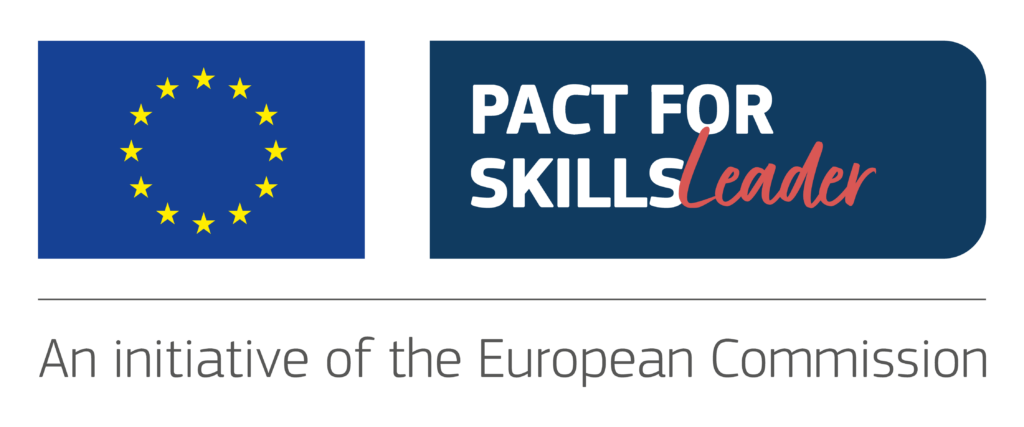Dealing with Cultural Diversity in Class: Creating Inclusive and Engaged Multicultural Learning Environments
Dealing with Cultural Diversity in Class: Creating Inclusive and Engaged Multicultural Learning Environments

Dealing with Cultural Diversity in Class: Creating Inclusive and Engaged Multicultural Learning Environments
diversity
In today’s increasingly globalized world, classrooms are becoming more diverse than ever before. This 7-day course is designed to help educators effectively manage the challenges and opportunities that come with teaching in multicultural and multilingual classrooms. By providing practical strategies for fostering inclusion, managing conflicts, and supporting students from diverse cultural and linguistic backgrounds, this course empowers teachers to create welcoming, dynamic learning environments.
Course Highlights:
– Level 7 EQC Certification: Attendees will receive a prestigious Level 7 EQC Certificate, Europass Certificate Supplement, and 10 transferable ECVET points, enhancing their professional qualifications.
– Practical Multicultural Teaching Strategies: Gain hands-on experience in managing culturally and linguistically diverse classrooms, from addressing conflicts to supporting students with limited language skills.
– Cultural Awareness and Sensitivity: Learn how to foster intercultural understanding and create a classroom atmosphere that promotes respect and inclusiveness.
– Real-World Classroom Applications: Explore how to tailor teaching styles to meet the needs of diverse learners, including Roma students and other nomadic communities.
– Collaborative Learning Environment: Work alongside educators from across Europe to share experiences and best practices in multicultural education.
Why Cultural Diversity in Education Matters:
As classrooms become more culturally and linguistically diverse, it’s essential that educators are equipped to address the unique challenges that arise. This course offers the tools and strategies necessary to foster a positive learning environment where every student feels valued and understood. By embracing cultural diversity, educators can inspire creativity, critical thinking, and a deeper understanding of global perspectives.
Course Objectives:
By the end of this course, participants will:
- Develop a deeper understanding of key concepts related to cultural diversity, and how to apply them in real classroom scenarios.
- Gain practical skills in managing conflicts arising from cultural or racial differences.
- Learn to adopt effective teaching styles that engage learners from diverse cultural and linguistic backgrounds, even without specific language teaching expertise.
- Improve their ability to support disadvantaged students, including Roma and nomadic learners, by fostering an inclusive learning environment.
- Develop strategies to encourage critical and creative thinking around issues of diversity, helping students reflect on global challenges.
- Increase their competence in English through collaborative learning and communication.
- Expand their professional network and share best practices with educators from across Europe.
- Build a sense of European citizenship and identity through participation in a community of European teachers and trainers.
- Become familiar with the Europass tool for professional development and recognition.
Course Content:
This course will cover a range of topics related to managing and promoting cultural diversity in education:
- Understanding Cultural Diversity: Clarify key concepts and contextualize them within the European and global educational framework.
- Managing Culture and Race-Induced Classroom Conflicts: Learn how to identify and address conflicts arising from cultural differences in a constructive and inclusive manner.
- Effective Teaching Styles for Multicultural Classrooms: Explore diverse teaching styles and how to adapt them to meet the needs of students from various cultural backgrounds.
- Supporting Linguistically Diverse Learners: Discover strategies to support students with diverse language needs, even if you’re not a language teacher.
- Fostering Critical and Creative Thinking: Use course content to stimulate student engagement with important social and cultural issues.
- Participants will engage in group discussions and practical exercises to ensure they can immediately apply these concepts in their classrooms.
Methodology:
This course is based on active learning and collaborative methods, with a strong emphasis on practical application. Lessons will be held in our center’s classrooms, computer lab, and in local environments, encouraging participants to experience real-world scenarios. The course is designed to ensure that participants can confidently apply the techniques they learn to their own educational contexts by the end of the course.
Unique Learning Opportunities:
Study Visits to Local Schools: Participants may request visits to local schools, such as special needs schools or schools with Roma mainstreaming programs. These visits provide firsthand experience of how local educators manage cultural diversity, followed by reflective activities. There is no extra cost for these study visits.
Gamified Tour of Kalamata: Explore the city in an interactive, gamified way that teaches participants how to incorporate cultural learning into outdoor environments.
Historical Site Visit: Learn about cultural diversity through the lens of European history, with a visit to a local historical site. This activity helps link historical events to modern classroom challenges. There is no extra cost for these outdoor learning activities.
Social Programme: An optional social programme allows participants to experience Greek culture and engage in intercultural exchanges through dinners, intercultural nights, and excursions. Participants will cover the cost of meals, drinks, and any optional excursions, including transportation and museum fees.
Who is This Course For?
This course is ideal for teachers, school principals, and educators who work with multicultural student populations or are interested in fostering an inclusive classroom environment. It is also suited for those looking to improve their skills in managing classroom diversity, supporting disadvantaged students, and promoting intercultural understanding.
Tailored to Your Needs:
– The course is highly customizable, starting with a pre-course questionnaire to ensure that training is adapted to each participant’s needs and experience.
– After the course, you’ll receive comprehensive materials, lesson plans, and resources to implement in your own classroom.
Duration and flexibility:
The course is typically 7 days at a cost of €560, but adjustments can be made for shorter or longer courses depending on grant requirements.
Venue and flexibility:
We offer our standard courses at Kalamata, a nice sea-side city in the south of Greece famous for its eponymous olives and olive oil.
It’s a quiet top golf destination and the Telegraph has included it in Europe’s 13 must-visit cities. Here’s a taster video: https://www.youtube.com/watch?v=i9lpkTfvR8Y&ab_channel=%CE%94%CE%AE%CE%BC%CE%BF%CF%82%CE%9A%CE%B1%CE%BB%CE%B1%CE%BC%CE%AC%CF%84%CE%B1%CF%82
Would you like to know what else you can in Kalamata? Check this site: https://experienceskalamata.com/
But, would you like to have the course at another part of Greece or country? Drop us a line to see what we can do for you!
Course confirmation
We have never canceled a course. We offer our standard courses only at our headquarters in Kalamata and only a few times per year. As a result, on top of being able to offer quality services all around, we do not have to meet any certain number of participants to cope with expenses.
Join a European Community:
As part of a European-wide initiative, this course offers you a valuable opportunity to collaborate with peers from across Europe, contributing to your professional growth while deepening your European identity.
Available Dates
- 2024
- 14.04.2024 – 20.04.2024
- 30.06.2024 – 06.07.2024
- 03.11.2024 – 09.11.2024
- 2025
- 16.02.2025 – 22.02.2025
- 06.07.2025 – 12.07.2025
Accommodation
During your stay here you can stay wherever you want. However, we do propose accommodation, which we can book for you and from which we offer free transfers to all course sites and activities.
Pre-payments
We do not ask for money upfront. You can pay whenever you want including when you arrive here.




